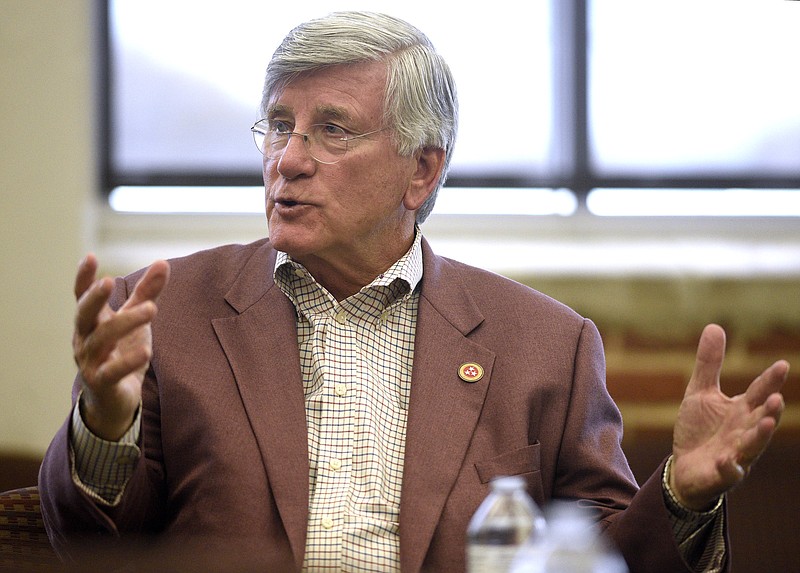A bill sponsored by Tennessee state Sen. Todd Gardenhire, R-Chattanooga, aiming to promote grocery store development in "food deserts" - primarily low-income, urban areas without supermarkets - passed in a Senate subcommittee meeting this week.
Gardenhire said 21% of Tennesseans don't have access to affordable, healthy food options because the nearest supermarket is miles away and people who live in low-income neighborhoods often lack transportation. Therefore, people living in food deserts are often forced to buy food from convenience stores and fast-food restaurants, which leads to higher rates of obesity and other chronic diseases, such as high blood pressure, diabetes, stroke and cancer.
Senate Bill 1619, or the Healthy Food Financing Act, would provide financial assistance through grants and loans, as well as tax cuts to investors who are willing to construct, rehabilitate or expand access to groceries in underserved communities.
"I've met with many large chain grocery stores," Gardenhire said in a news release. "They simply do not find it profitable to go into inner city neighborhoods for a myriad of reasons, which is why these incentives are needed. The citizens in these neighborhoods have to rely on public transportation to get to a grocery store."
For low-income workers, taking public transportation to a supermarket is an additional barrier, he said.
James Moreland, a longtime advocate for East Chattanooga improvement, said looking at the health disparities in Chattanooga's food deserts "will scare you," and bringing supermarkets back to neighborhoods such as Avondale, Glenwood, Brainerd and Highland Park is critical to improving the health of those communities.
"Why would blood pressure be higher in those ZIP codes? It has a lot to do with what people are eating on a daily basis," Moreland said, adding that children and seniors living on a fixed income are hit especially hard.
"They can't drive somewhere like Walmart. These people only get a small check each month, so when they have to pay a taxi $20 to go to the grocery store, they've spent a big portion of the little money they get every month," he said. "Being in a food desert is devastating in a lot of different ways."
The new program would be administered by the Tennessee Department of Economic and Community Development. In order to qualify for the program, an applicant must meet certain guidelines which include allocating at least 30% of food retail space for the sale of perishable goods, promoting the hiring of local residents, and demonstrating the capacity to successfully implement the project with the likelihood it will be economically self-sustaining.
Gardenhire said creating more jobs would be another benefit of the program.
"In addition to increasing access to fresh healthy foods, it is also important to educate communities about their benefits," he said. "Ultimately, it is my hope that we can address both access and education to facilitate lifestyle changes that will have an impact for generations to come."
Contact Elizabeth Fite at efite@timesfreepress.com or 423-757-6673.
